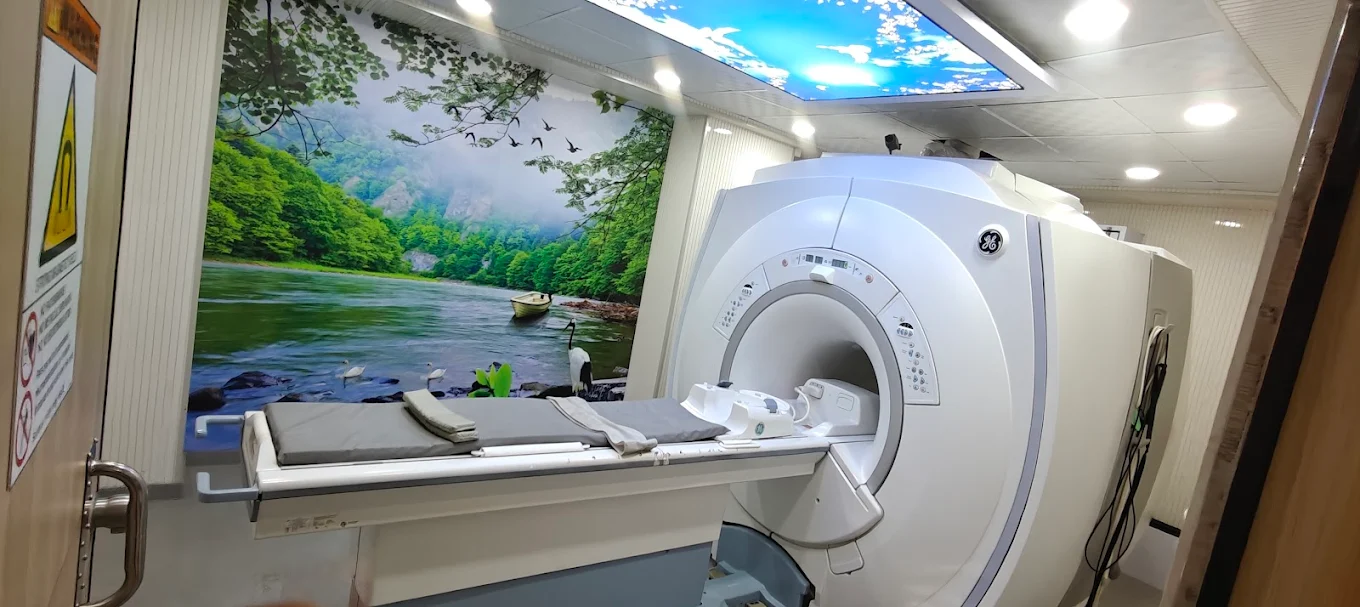
Our Services
14 Total Services

MRI
An MRI is a noninvasive medical imaging test that uses a powerful magnetic field and radio waves to create detailed pictures of organs, soft tissues, and other internal structures.
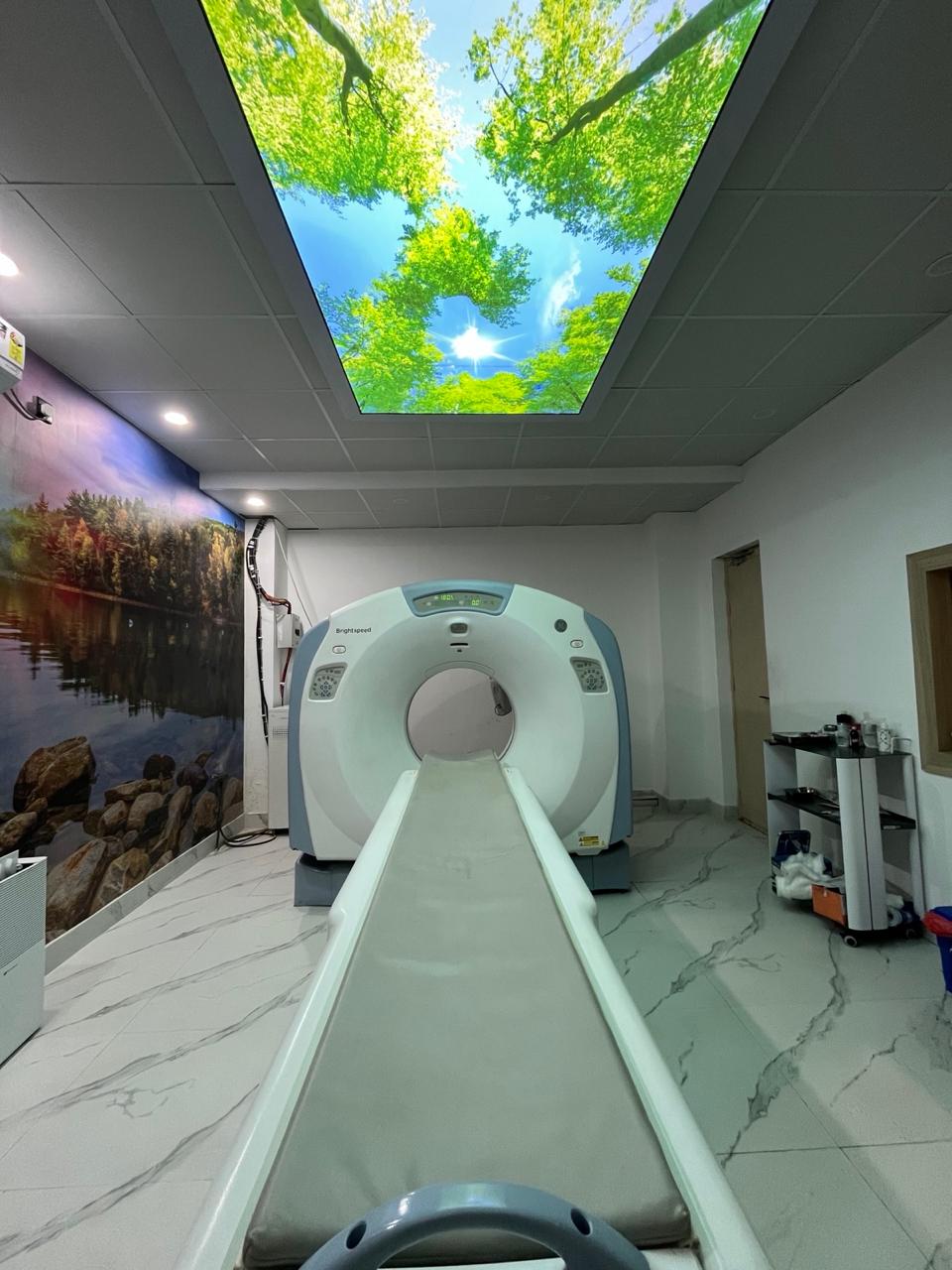
CT Scan
A CT scan is a diagnostic medical imaging procedure that uses a series of X-rays and computer processing to create detailed cross-sectional "slices" of the body.
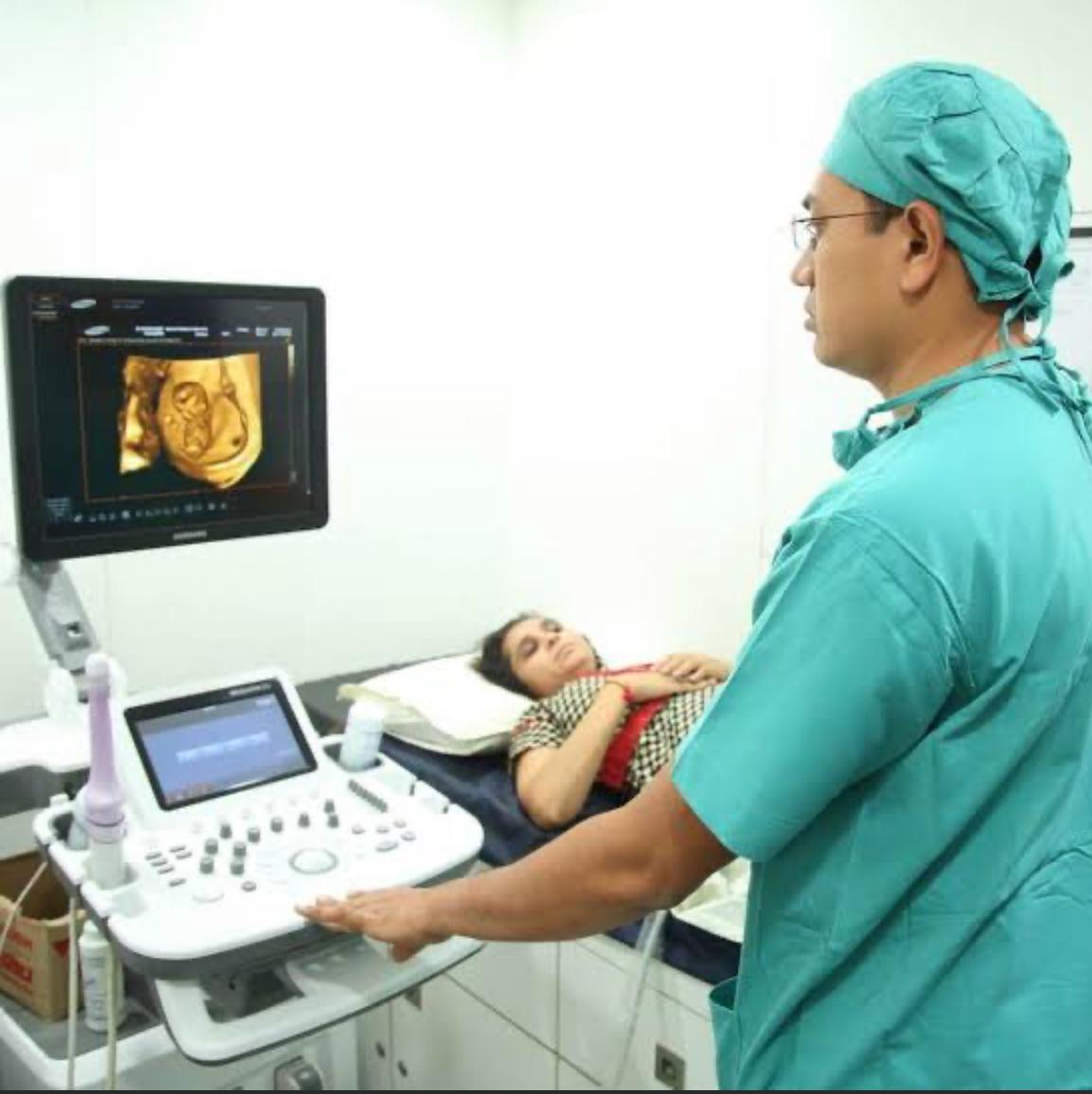
Ultrasound
Ultrasound imaging is a noninvasive medical imaging test that uses high-frequency sound waves to produce real-time pictures of internal organs and soft tissues. Unlike X-rays, it does not use radiation, making it a safe tool for viewing a developing fetus during pregnancy.
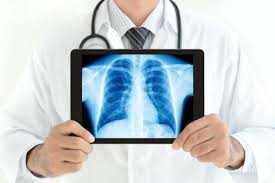
Digital X-ray
A digital X-ray is a modern form of medical imaging that uses electronic sensors to capture images of the body's internal structures.
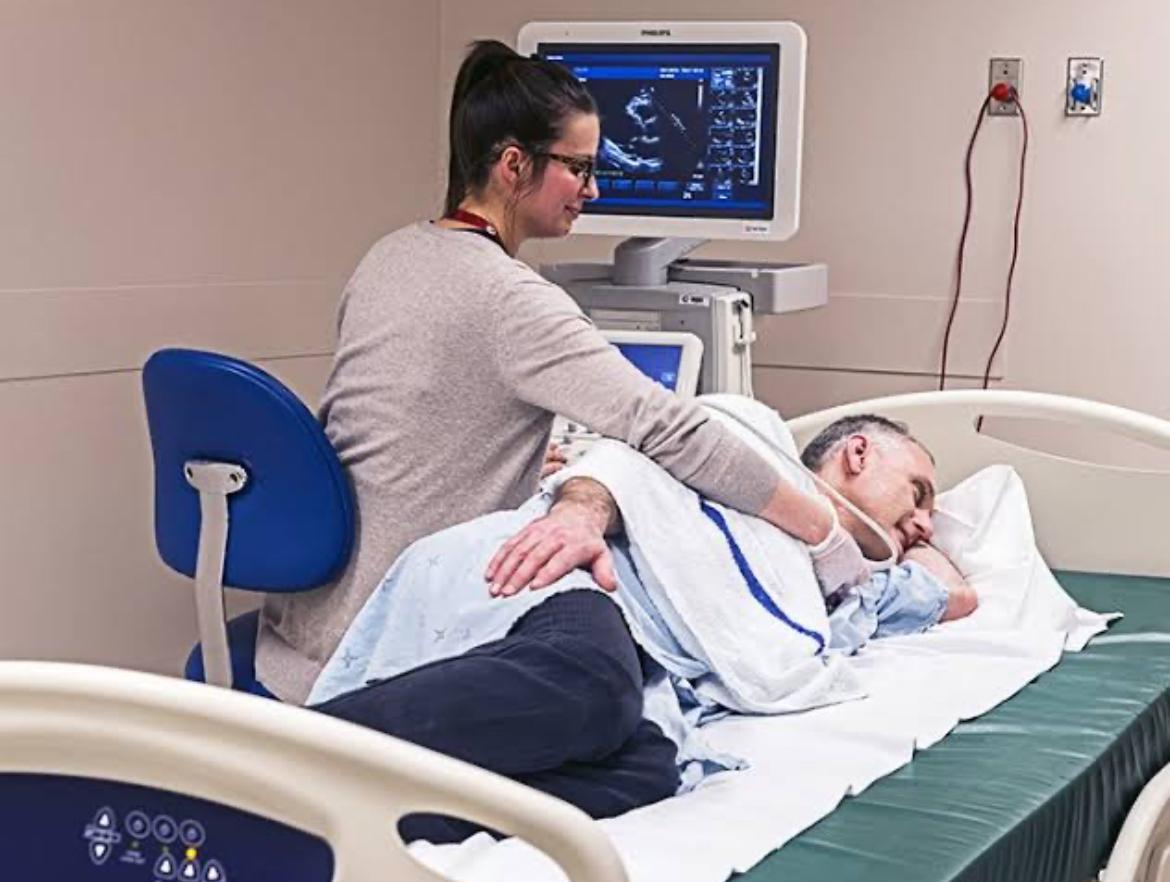
2D Echo
A 2D echo, or 2D echocardiogram, is a non-invasive ultrasound procedure that uses sound waves to create real-time, two-dimensional images of the heart's structure and function.
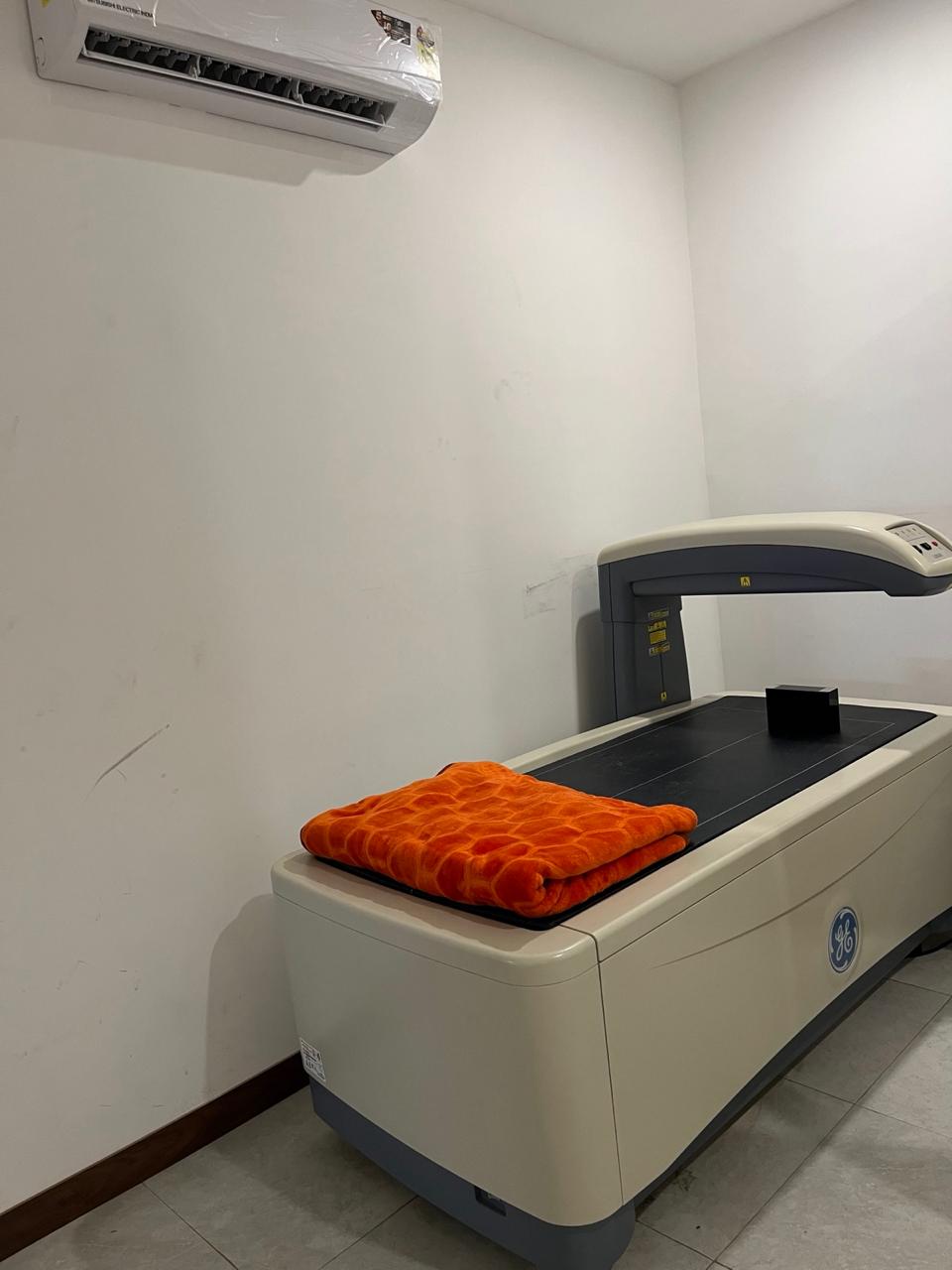
DEXA
DEXA (dual-energy X-ray absorptiometry) is a low-dose X-ray test that measures bone mineral density (BMD) to assess bone strength and help diagnose conditions like osteoporosis.

EEG
An EEG (electroencephalogram) is a non-invasive medical test that measures the electrical activity of the brain through electrodes placed on the scalp.
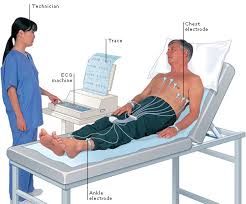
ECG
What Does An Abnormal ECG Mean? - Capital Heart CentreAn Electrocardiogram (ECG or EKG) is a medical test that records the heart's electrical activity to diagnose heart conditions.
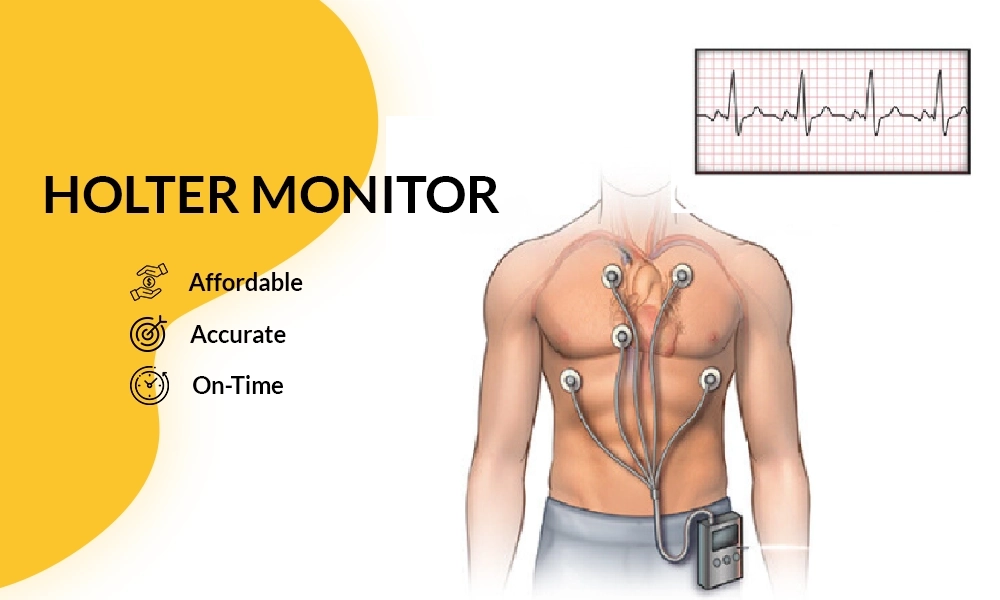
HOLTER
A Holter monitor is a small, portable device that continuously records a person's heart's electrical activity for 24 to 48 hours or longer, using electrodes on the chest connected to a recording device.
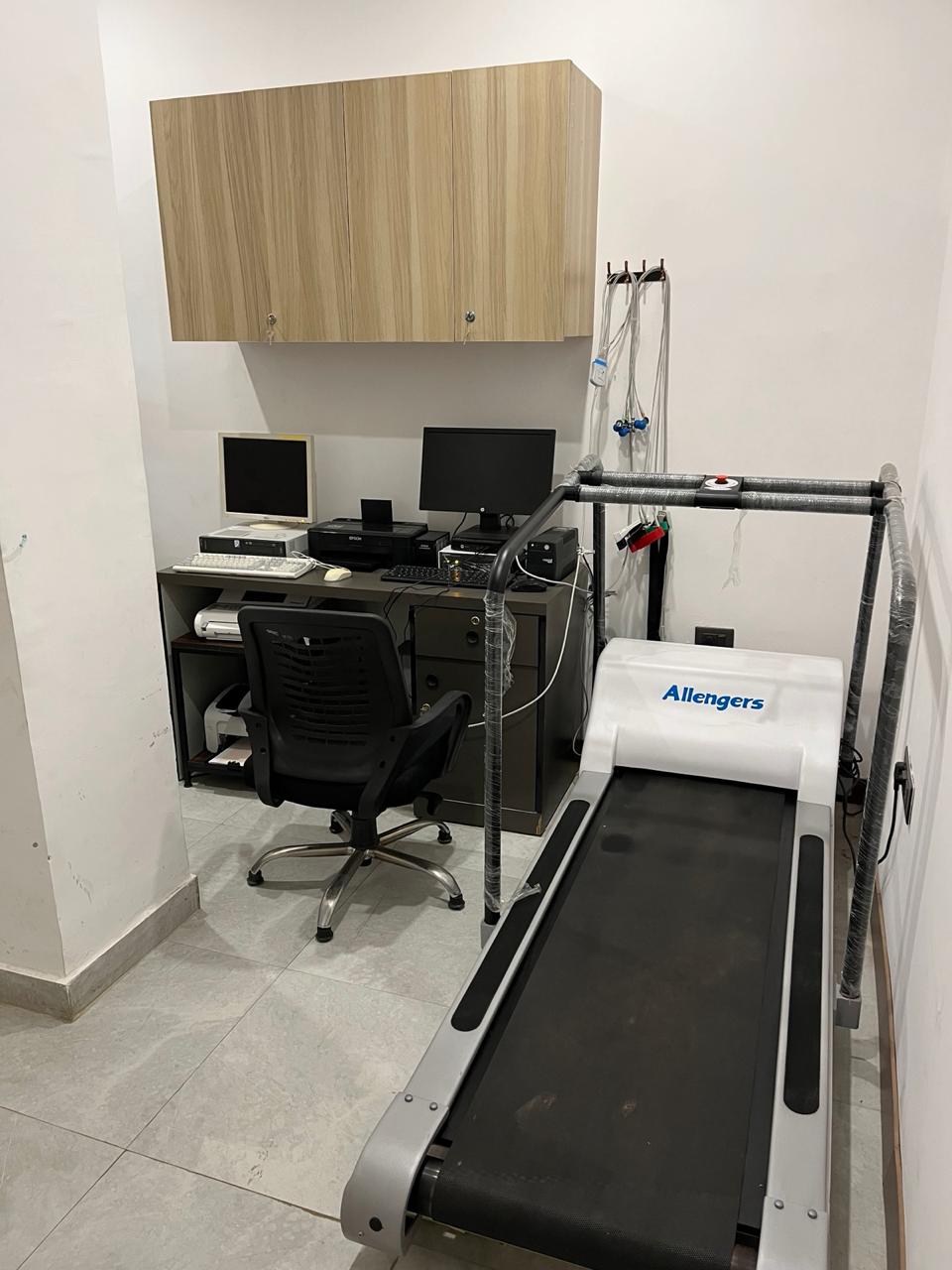
TMT
A Treadmill Test (TMT), or exercise stress test, assesses how well your heart handles physical stress by monitoring your heart rate, blood pressure, and Electrocardiogram (ECG) as you exercise on a treadmill.